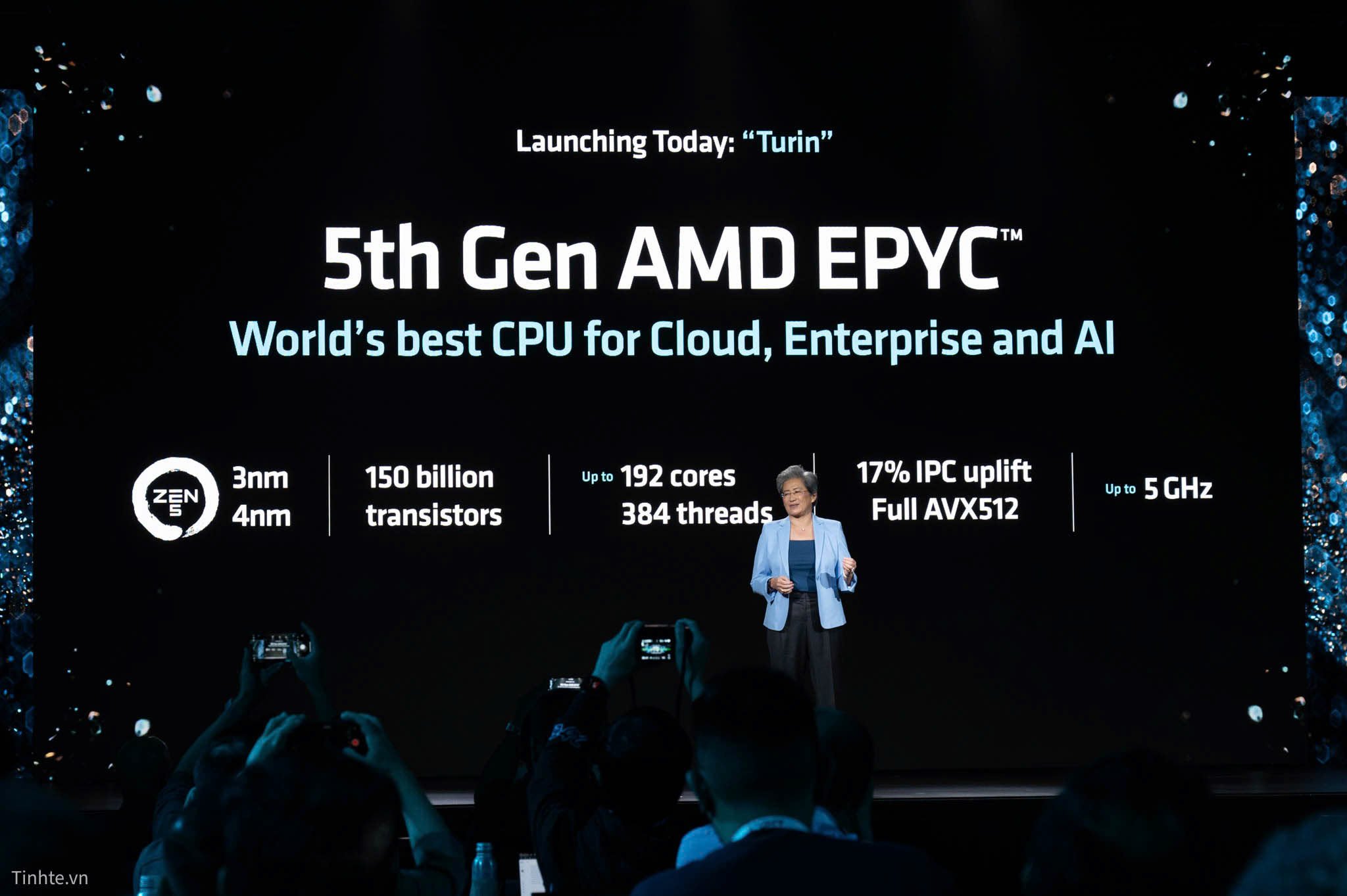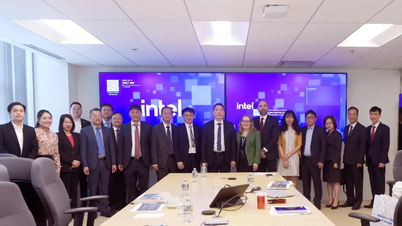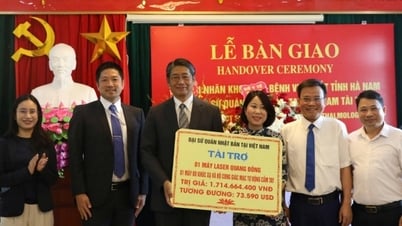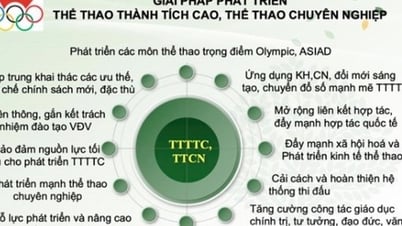Yesterday, Reuters quoted several close sources as saying that US officials are discussing restricting the export of chips specializing in developing artificial intelligence (AI) technology from NVIDIA and some US companies such as AMD to some countries.
Export restrictions to many countries
Recently, the US has restricted the export of NVIDIA graphics processing units (GPUs), which are highly valued for AI development, to a number of countries such as China, Saudi Arabia, UAE, etc.

AMD could be affected by US chip export restrictions (In picture: AMD introduces new chips in the US last week)
This time, Washington is focusing on restricting AI chips to Gulf countries, and the proposed measure is to issue export limits. The reason the US is pursuing this intention is "in the interest of national security". Both the US Department of Commerce and corporations such as NVIDIA, AMD, Intel declined to respond to Reuters on the above issue. Last month, the US Department of Commerce issued new regulations to limit the sale of AI chip shipments to data centers in the Gulf.
Last year, Washington announced measures to expand licensing requirements for advanced semiconductor exports to more than 40 countries, including several in the Middle East and Southeast Asia, risking the transfer of chips to China, which is subject to a U.S. arms embargo. The ban on advanced chip exports to China is seen as one of Washington’s trump cards in its current existential struggle with Beijing.
Fall into a difficult position
According to Bloomberg, there is a broad consensus in US politics that China’s access to advanced chips needs to be limited. However, how to deal with the situation of chips being transferred to other countries and then to China has become a challenging problem for the US.
Washington believes that advanced chips not only bring technological advantages but also military strength to Beijing. After being embargoed by the US, China still has advanced chips through intermediaries in some countries in the Middle East, Southeast Asia and other regions of Asia. Therefore, the US has issued regulations that exports to some countries must be licensed with a strict inspection process. This makes it difficult for US technology corporations to supply chips to many major partners.
For example, Microsoft recently invested about $1.5 billion in an AI company called G42 in the UAE. However, the slow approval process for supplying advanced chips to G42 has seriously affected the project.
Or in a Southeast Asian country participating in the Indo-Pacific Economic Framework (IPEF) launched by the US with a focus on developing the semiconductor supply chain, it is also facing difficulties in its cooperation plans with the US because it is on the list of countries that Washington restricts advanced chips for fear of "smuggling" to China.
Not only that, these barriers open up opportunities for many technology companies in other countries to access global customers without being subject to the constraints imposed by Washington. Recently, Huawei (China) has continuously invested in and developed advanced chip lines, so it can take advantage of the above opportunity to exploit the market.
Therefore, the US government is having to find a solution that meets both sides, but this is not simple.
Source: https://thanhnien.vn/ngan-trung-quoc-tiep-can-chip-tien-tien-my-roi-vao-the-kho-185241015180128663.htm



![[Photo] Prime Minister Pham Minh Chinh chairs conference on anti-smuggling, trade fraud, and counterfeit goods](https://vphoto.vietnam.vn/thumb/1200x675/vietnam/resource/IMAGE/2025/5/14/6cd67667e99e4248b7d4f587fd21e37c)



















![[Infographics] Vietnam re-elected Chairman of the World Customs Organization's Standing Technical Committee](https://vphoto.vietnam.vn/thumb/402x226/vietnam/resource/IMAGE/2025/5/14/ae5e22967ce14621b808fd71d3308f63)










































































Comment (0)